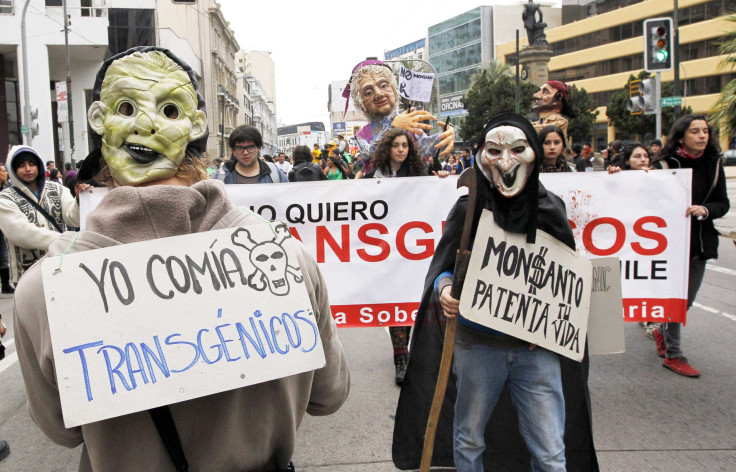Monsanto Boosted Lobbying Spending As ‘Monsanto Protection Act’ Backlash Raged

Monsanto Company (NYSE:MON) significantly increased its spending on federal lobbying in the third quarter of 2013 as it sought to increase its influence on a variety of policy issues, including the so-called Monsanto Protection Act.
The agricultural giant best known for producing genetically modified, or GMO, seeds spent more than $2.4 million on lobbying in the third quarter of 2013, up more than $1 million from the $1.4 million it spent in the second quarter, according to U.S. Senate lobbying records.
Monsanto has become the public face of the debate over GMOs, food labeling and related controversial topics in recent years, despite the fact that other companies including DuPont, Syngeta AG and the Dow Chemical Company also create and sell genetically modified and genetically engineered products, some of which end up in the food supply.
Ever since the 2008 documentary "Food Inc." chose to focus on Monsanto as the central antagonist in a perceived war on food, there has been little love for the company from educated eaters, health-conscious citizens, environmentalists and food advocates.
And it appears that Monsanto is boosting its efforts to counter that narrative by spending more money to influence members of Congress on issues including “Biotech Innovation and Regulations,” “Proposed Reforms to Patent Litigation,” “Phosphate Mining,” “Foreign Agriculture Laws, Regulations and Trade,” and a number of laws and bills under consideration by lawmakers, according to the company’s lobbying filings.
Monsanto, named the “Most Evil Corporation” in a June poll by the website NaturalNews, has faced a deluge of negative press and attention this year, beginning in March with the backlash over the "Monsanto Protection Act," a measure written in cooperation with Monsanto lobbyists to limit the options of federal regulators if new health concerns about GMOs come to light. The language was infamously slipped into a continuing resolution passed by Congress to keep the government funded.
Monsanto spent large sums of money to employ five top lobbyists to press members of both the U.S. House of Representatives and Senate on the continuing resolution, likely in an effort to get legislators to keep the “Monsanto Protection Act” language in the bill, according to the company’s filings.
In the end, the Senate killed the measure in September despite Monsanto’s efforts to ensure it remained on the books.
The Monsanto Protection Act was seen as largely responsible for virulent anti-Monsanto sentiment that came to a head in late May when an estimated 2 million people around the world took to the streets in the "March Against Monsanto," in an attempt to discredit the company and draw attention to some of its most controversial practices.
At the end of May, Japan and South Korea stopped importing American wheat after unapproved Monsanto GMO wheat was found growing on an Oregon farm, adding more fuel to the anti-Monsanto crusade.
Monsanto wasn’t the only company to significantly boost its lobbying efforts in the third quarter of 2013, as Politico points out that Pfizer spent $2.4 million versus $1.5 million in the second quarter.
© Copyright IBTimes 2024. All rights reserved.











